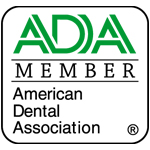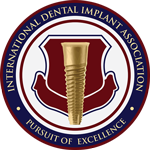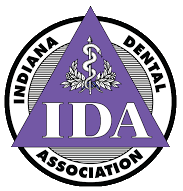
WHAT IS SPIT FOR? It’s a pretty important question in the realm of oral health. People tend to think of saliva in a negative context if they think about it at all, but without spit, we would have a hard time chewing, swallowing, or even tasting our food. We also wouldn’t be able to speak clearly, and our teeth and gums would be much more vulnerable to problems like gum disease and tooth decay.
Healthy Saliva Production
Our saliva is produced continuously by salivary glands in our cheeks and beneath our tongues, and average output ranges from two to six cups a day. About 98% of saliva is water, but the final 2% is crucial, because it’s made up of proteins, electrolytes, digestive enzymes that start breaking down food, antimicrobial factors that fight germs, and even minerals to keep our tooth enamel strong!
Saliva Works in Different Phases
Depending on how far along the digestive process is, our salivary glands produce extra saliva for different reasons. When we smell a mouthwatering dessert, that’s the cephalic phase. Next comes the buccal phase when we start eating, and this helps us swallow food. After that, the esophageal phase kicks in to move the food on down to the stomach.
There’s also a slightly less pleasant phase: the gastric phase. If we’re sick or there’s something wrong with the food we ate and we have to vomit, the salivary glands work overtime to make a protective coating of saliva, which minimizes the damage stomach acid can do to our teeth and gums on the way out. (But we should still swish with water and brush our teeth half an hour later to get rid of any remaining stomach acid.)
How Saliva Protects Our Teeth
Why does an extra coating of saliva help protect our teeth and gums against acid? It’s because one of the main jobs saliva does is keeping the pH of our mouths as close to neutral as possible, which in turn keeps our tooth enamel strong. Tooth enamel might be extremely hard, but it is very vulnerable to erosion from acids in the foods we eat and fluids we drink. That’s why saliva is so important for oral health.
Beyond neutralizing acids, saliva fights harmful bacteria that causes gum disease and bad breath. Saliva is also part of the reason that oral injuries (such as a bitten cheek or a burned tongue) heal faster than injuries elsewhere on the body. Saliva contains growth factors that promote quicker healing!
When There Isn’t Enough Spit…
Given all the important functions saliva performs, it should be no surprise that dry mouth can lead to a lot of oral health complications. Whether it’s caused by stressful situations, mouth breathing, dehydration, a smoking habit, drinking, side effects of medications, or even simple aging, dry mouth is something the dentist should know about.
The Dentist Can Help With Dry Mouth
Dry mouth can include symptoms like difficulty chewing and swallowing and a reduced sense of taste. If you’re experiencing these symptoms, let the dentist know. You deserve to have all the benefits that come with having enough saliva, and the dentist can help!






